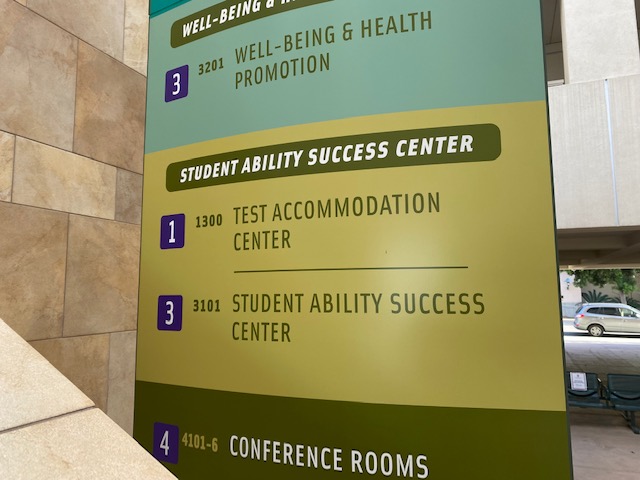San Diego State is developing a Basic Needs Center located on the third floor of the Calpulli Center, opening in the fall of this year.
This space, operated by the Economic Crisis Response Team (ECRT), will help students in need of financial assistance, housing support, food resources, employment resources, technology support, mental health support and transportation support.
Associate Director of ECRT Chelsea Payne, said this space will now allow students to have a place to go where they can feel comfortable asking for help.
“They are going to know that there is a space where they can talk about basic needs, get support with their basic needs, attend workshops around finances about basic needs and know there is no stigma that exists in that space,” Payne said.
The ECRT aims to bridge the gap in resources for students in need. This process starts by submitting a request on the ECRT website. Payne encourages students to reach out and seek help to fight the stigma against asking for basic need support.
“Once they are in with us, they get it. We’re not stigmatizing, we’re accepting and open and non-judgemental and we are curious about their situation only so that we can help. So many students end up saying something like, ‘I wish I knew about this sooner,’” Payne said.
Dance junior Wendy Ceja, a student who has received transportation support and mental health support from the ECRT, said many people need support, and reducing the stigma surrounding basic needs is important.
“Those resources are there for us,” Ceja said.“It’s 100% okay to ask for help; everybody needs that help sometimes.”
Kinesiology junior Vincent Chen, said eliminating the stigma surrounding basic needs would help students be more willing to ask for the resources the ECRT provides.
“Without the stigma, people would be more open to getting help rather than being afraid that others will think less of them,” Chen said.
Research has shown that housing and financial insecurity negatively affect a students’ success. Payne said student success at SDSU is dependent on an array of factors, and that is why the ECRT takes on a holistic approach.
“I’m reminded so quickly that students are not just students. I’m not just a person who works. We have so many parts to all of us, and I think what students feel is that when they work with us, we really care about all those other parts too,” Payne said. “That is truly the holistic framework we provide to students.”
To request financial assistance, housing support, food resources, employment resources, technology support, mental health support or transportation support, go to the ECRT website.










